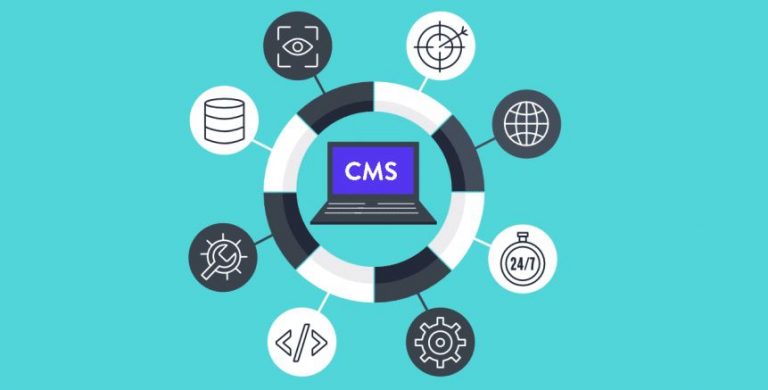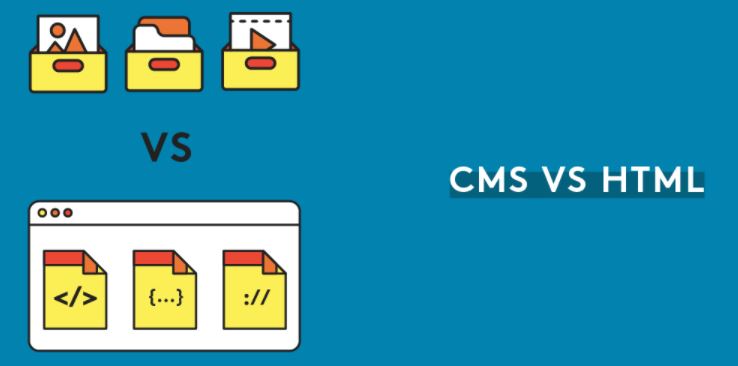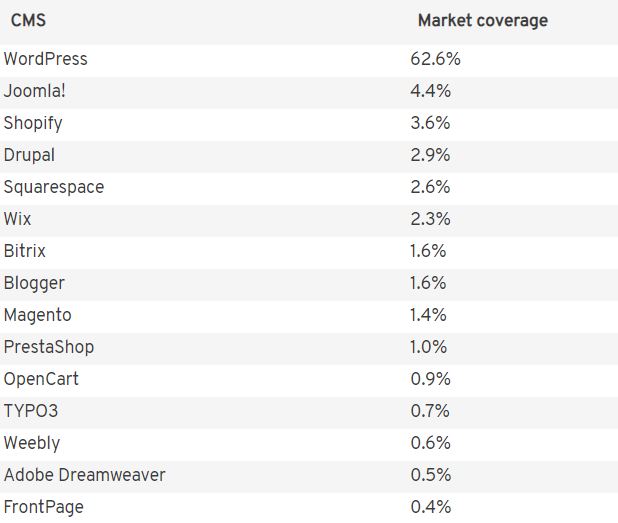
A content management system is software that allows users without programming knowledge to create, edit, and publish web content, such as text or multimedia elements, collectively via a graphical user interface. It simply means, you are not required to have any HTML or advanced coding skills if you want to publish content on your website using any CMS platform.
CMS VS HTML

It is critical to take note of that every site is made with utilizing HTML and CSS (Cascading Style Sheets), coding languages. The question here is, would it say it was coded without any preparation, or is the page utilizing a CMS to sort the page out more effectively? Well, no website is designed without the use of HTML. But it doesn’t mean that CMS is not worth! CMS actually eases the designing tasks and provides you fully functioning dynamic website in few days only. You can get your site customized as per your requirement.
What Makes up a Content Management System?
On a more technical level, a content management system is made up of two core parts:
A content management application (CMA) – this is the part that allows you to actually add and manage content on your site (like you saw above).
A content delivery application (CDA) – this is the backend, behind-the-scenes process that takes the content you input in the CMA, stores it properly, and makes it visible to your visitors.
Together, the two systems make it easy to maintain your website.
Features of CMS:
Content management: How, and how easily, can you create, edit, post, and manage web content (including text, images, video, and audio)?
Presentation: Customers jump from device to device, and no marketing org can put human effort into optimizing every blog post or catalog page for laptop, tablet, and top smart phone formats. You want to create it once and have the CMS automate the presentation to suit the device.
Integration: Is the solution holistic , like Sitecore’s Experience Platform, or does it rely on APIs to connect your content to other applications, such as CRM and ERP tools, and to crucial external platforms such as Facebook? Are the APIs you’re going to need available?
Commerce: A crucial integration is being able to connect a personalized marketing presentation to your digital commerce systems. You can’t address the “customer journey” if you leave this destination off your map.
Personalization: Can it target relevant content to unique visitors, by persona, location, or even individually based on past interaction with your brand?
Analytics: You’re serving up content, but is anyone reading it? And what do they do next? Demand visibility into performance so you can optimize your efforts and define ROI.
Multilingual support: Are you translating into other languages and publishing globally? Can the solution support that?
Scalability/Performance/Stability: Is the solution reliable from a fundamental technology standpoint, and will it grow with your organization’s needs?
Training/vendor support: WCM solutions are increasingly complex, with ever-greater promises, but most teams need help to get up and running beyond a basic level.
Market coverage of different content management systems:
